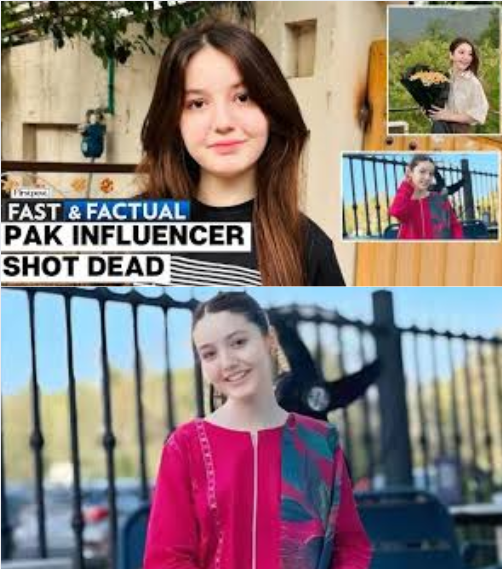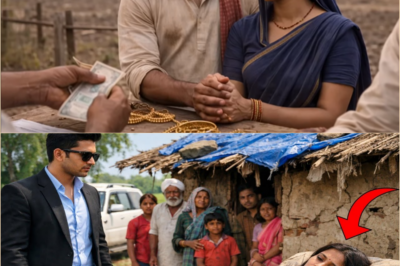Famous Social Media Influencer KILLED After Refusing A Marriage Proposal
In a deeply disturbing incident that has once again highlighted the rising threats faced by female social media creators in South Asia, Pakistani influencer and content creator Sumera Rajput has been found dead under suspicious circumstances at her residence. According to initial reports, Sumera was poisoned—allegedly murdered after she refused a marriage proposal. The shocking nature of her death has sparked outrage, mourning, and serious questions about the safety of women in the public eye.
Sumera Rajput, a popular figure on social media platforms, was reportedly targeted after she declined repeated marriage proposals from an unidentified man. Her lifeless body was discovered at her home, and police suspect she was killed using toxic substances. The case is currently under investigation, with two suspects already taken into custody for questioning. Authorities have yet to file formal charges.
The incident came to light after Sumera’s 15-year-old daughter—who is also a rising social media personality—raised the alarm. In an emotional and heart-wrenching statement, the teenage girl accused certain individuals of coercing her mother and ultimately poisoning her to death. She claimed that her mother was given poisonous tablets, which she consumed unknowingly, leading to her untimely demise.
Local media reports have revealed that Sumera had been under pressure from an individual who persistently demanded she marry him. Her consistent refusal allegedly enraged the man, who may have resorted to violence in retaliation. The daughter’s testimony further corroborates these suspicions, as she pointed directly to the man as being behind the deadly act.
While police investigations are ongoing, the case underscores a growing and alarming trend: the increasing vulnerability of women, particularly those who gain fame through online platforms. In conservative societies where fame, independence, and public visibility for women are often frowned upon, such attacks are becoming frighteningly frequent.

This tragic event follows the murder of another well-known Pakistani social media figure, Sana Yousuf, who was shot dead inside her home just weeks earlier. Sana’s case, like Sumera’s, involved personal enmity and the perceived dishonor her public presence brought to certain individuals. Both incidents occurred in private residences, suggesting the killers were either known to the victims or had carefully planned their entries.
Sumera Rajput had amassed a significant following on TikTok and Instagram, where her lifestyle content, fashion videos, and candid family moments resonated with thousands. Admirers praised her for her beauty, resilience, and unapologetic embrace of public life. She often featured her teenage daughter, who herself was building a presence online and aspired to follow in her mother’s footsteps.
Friends and fans described Sumera as a woman of integrity, someone who worked hard to support her family and who refused to compromise her values for fame or financial gain. For many, she represented a rare voice of empowerment in a region where women’s visibility often attracts backlash, abuse, and threats.
The daughter, in a tearful public appeal, called for justice and protection. “They gave my mother poison. She didn’t deserve this,” she said. “My mother only wanted to raise me with dignity and give me a better life. Why did they kill her?”
Sumera’s death has ignited a broader debate on women’s safety and digital freedoms in Pakistan. Activists, women’s rights organizations, and online communities have expressed outrage, urging the government to act swiftly and decisively. Many are calling for comprehensive protection for female creators, public figures, and anyone targeted because of their gender and visibility.
The police, while confirming that two people have been taken into custody, have yet to officially register a case. Critics argue that this delay reflects a systemic failure to treat such cases with the urgency and seriousness they deserve. In past incidents involving violence against women, especially influencers or celebrities, law enforcement has been accused of sluggish responses, poor investigations, and reluctance to confront influential suspects.

Online platforms have also come under scrutiny. While they offer creators the opportunity to build careers, gain independence, and influence change, they also expose them to harassment, stalking, and violence. Influencers like Sumera Rajput often find themselves without any formal protection, even as their fame grows and risks escalate.
Sumera’s case is particularly harrowing because it reveals how deeply gender dynamics continue to affect women’s lives—even those who seemingly break barriers. Her success on social media may have given her financial freedom and a strong fanbase, but it also made her a target. The alleged killer, unable to control her in life, may have decided to silence her permanently.
Human rights organizations in Pakistan have issued statements condemning the murder and urging authorities to pursue justice. “Sumera Rajput’s death is a tragedy, but it must also be a wake-up call,” said one spokesperson. “Women have the right to say no. They have the right to live without fear. The state must protect them.”
Social media has exploded with grief and anger. Hashtags like #JusticeForSumera and #StopKillingWomen have been trending across platforms in Pakistan and India. Influencers, actors, and journalists have posted tributes, denounced violence against women, and demanded systemic reform.

Meanwhile, Sumera’s daughter is left not only without her mother but also with the burden of seeking justice in a society where such battles are often long and painful. Observers have noted her courage and composure during this traumatic time. “She has shown a strength beyond her years,” one family friend said. “Her mother raised her well. Now it’s up to society to ensure she isn’t left alone in this fight.”
The silence of the accused has added to the mystery and speculation. Though two suspects are being held, no confession has been made public, and the investigation’s pace has drawn criticism. Activists fear the case may be quietly shelved unless pressure is maintained from the media and civil society.
Sumera’s funeral, held in her hometown under heavy security, was attended by hundreds of supporters, family members, and fellow creators. Many wore black and carried signs demanding an end to violence against women. Her daughter, though grieving, stood tall among them, promising to continue her mother’s legacy of bravery and independence.
The story of Sumera Rajput is a chilling reminder that for many women, visibility can be dangerous. Her refusal to bow to pressure, to marry someone against her will, and to compromise her autonomy, ultimately may have cost her life. But it is also a story of resistance—a life lived with courage, and a daughter now determined to seek justice.
As the investigation continues, the world watches, hoping that Sumera’s story does not become just another statistic. Her death must mark a turning point, not just for Pakistan, but for all societies struggling with gender violence and the dangerous intersection of fame and female independence.
The question now remains: How many more women must die before being famous doesn’t become a death sentence?
Play video :
https://youtu.be/NKJuSQFiYAc?si=zNpbCd1TZEBLo5_R
News
सबने समझा कूड़ा बीनने वाला लड़का… लेकिन उसको करोड़ों का खजाना मिल गया 😱
सबने समझा कूड़ा बीनने वाला लड़का… लेकिन उसको करोड़ों का खजाना मिल गया 😱 . . . कचरे में दबा…
प्रेम बाईसा के पिता ही निकले असली कातिल? पुलिस की लाठी पड़ते ही उगला सच। Sadhvi Prem Baisa Case
प्रेम बाईसा के पिता ही निकले असली कातिल? पुलिस की लाठी पड़ते ही उगला सच। Sadhvi Prem Baisa Case ….
पति 2 साल बाद विदेश से पैसा कमाकर लौटा तो देखा पत्नी टूटी फूटी झोपड़ी बाहर चारपाई पर बीमार पड़ी है
पति 2 साल बाद विदेश से पैसा कमाकर लौटा तो देखा पत्नी टूटी फूटी झोपड़ी बाहर चारपाई पर बीमार पड़ी…
पति IAS की ट्रैनिंग से लौट रहा था तलाकशुदा पत्नी ट्रेन में भीख मांगती मिली फिर जो हुआ…
पति IAS की ट्रैनिंग से लौट रहा था तलाकशुदा पत्नी ट्रेन में भीख मांगती मिली फिर जो हुआ… . ….
“दरोगा ने IPS को भिखारी समझा और किया बदतमीजी – फिर हुआ ऐसा पल जो सबने देखा!”
“दरोगा ने IPS को भिखारी समझा और किया बदतमीजी – फिर हुआ ऐसा पल जो सबने देखा!” . . ….
घमंड में डूबी मालकिन ने जिस लड़के को नौकर समझा वही निकला कंपनी का मालिक सच सामने आते ही सब दंग रह गए
घमंड में डूबी मालकिन ने जिस लड़के को नौकर समझा वही निकला कंपनी का मालिक सच सामने आते ही सब…
End of content
No more pages to load







